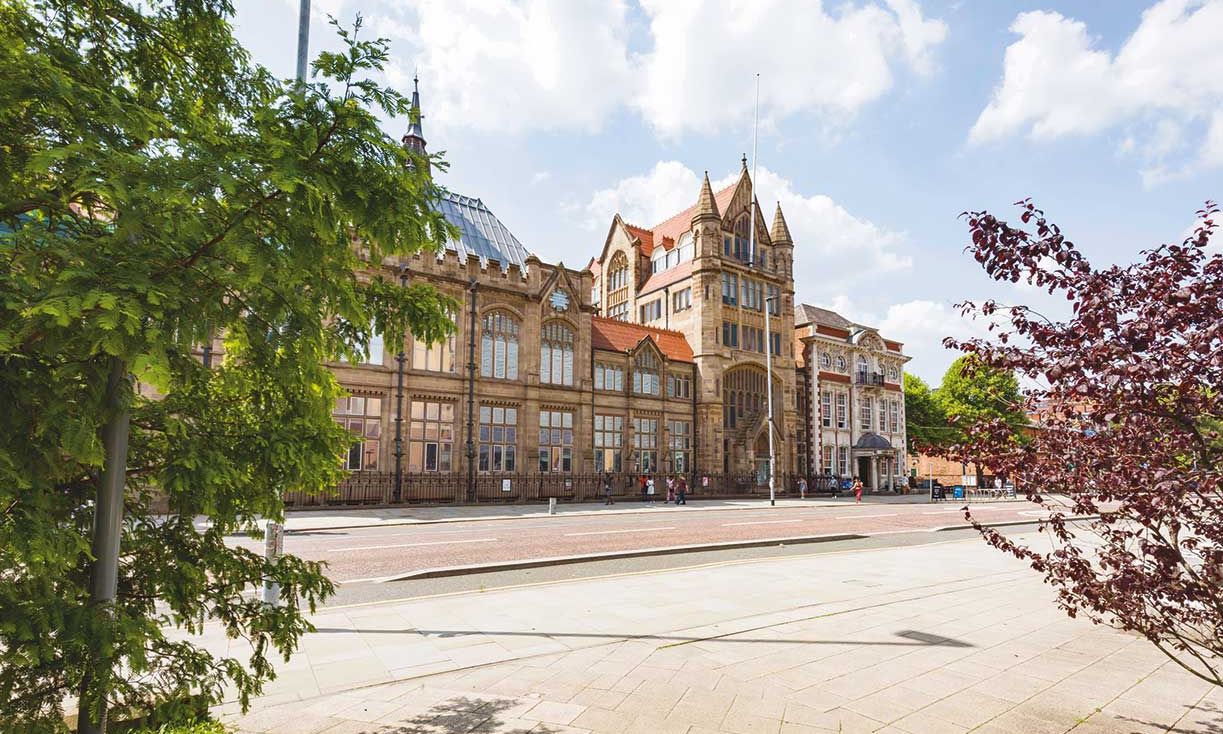The Manchester Museum’s reopening this month coincides with a thorough rethink of its collections Photo: Chris Bull/Manchester Museum
After a year and a half of closure due to renovations, the Manchester Museum will reopen its doors to the public on 18 February. The £15m redevelopment project includes an extension to the Neo-Gothic building, a new entrance hall and the reinstallation of around half of the museum’s galleries, which house anthropological and archaeological objects from across the world.
The reopening will also emphasise the ongoing shift—present at institutions across the UK—towards explicitly dealing with the museum’s links with colonialism. In a first for the UK, the museum has hired a curator of Indigenous perspectives to spearhead this initiative.
Alexandra P. Alberda is part Jemez Pueblo, a native group from what is now New Mexico in the US. As part of her role, she also leads the Indigenising Manchester Museum programme, and so oversees the museum’s collection of cultural objects, many of which are of uncertain provenance. For the reopening of the museum, Alberda has curated an exhibition exploring the theme of belonging, commissioning 15 artists to create comics which link their own experiences to existing objects held in the museum’s collection.
Alberda’s curatorial attitude will be evident in several of the newly reopened gallery spaces. The South Asia Gallery, a partnership with the British Museum, will be the first permanent UK gallery dedicated to the history and experience of the South Asian diaspora, while the blockbuster exhibition at the centre of the reopening, titled Golden Mummies of Egypt, will acknowledge the impact of the Victorian era in which its objects were originally excavated. The museum has also hired a curator of living cultures, Njabulo Chipangura, who is responsible for more than 20,000 objects from Africa, Asia, Oceania and the Americas and, like Alberda, is working towards building equitable relationships with source communities.
Such changes are taking place in other, close by institutions. On the day the museum opens, another Manchester institution, the Centre for Chinese Contemporary Art (CFCCA), will reopen with a new name: esea contemporary. The name change is part of a “critical transformation… to redefine and re-envision our organisation’s purpose and mission”, writes the institution’s director, Xiaowen Zhu. The gallery has also restated its mission to better represent and be reactive to the realities of East and South-East Asian (ESEA) communities.
“There’s been an upswell of interest in museums across the country when it comes to thinking about the links between their collections and historic forms of erasure,” says Sadiah Qureshi, a senior lecturer on race and empire at Birmingham University. “Increasingly, visitors are not just interested in seeing a label that tells you the taxonomy. They’re interested in broader social connections.”
Another key part of the indigenising initiative for Alberda is supporting Indigenous communities’ ownership over their own cultural heritage through the ‘proactive’ repatriation of objects. In 2019 the Manchester Museum collaborated with the Australian Institute of Aboriginal and Torres Strait Islander Studies (AIATSIS), resulting in the unconditional
repatriation of 43 ceremonial objects to Indigenous communities in Australia.
Now, the Manchester Museum plans to move towards conducting its own research to discover the provenance of items in its collection, rather than waiting for Indigenous communities to reach out. “We’re starting to break into the territory of proactive repatriation,” Alberda says. “How can we allocate more resources to support repatriation, so that we’re not always reactive?”

